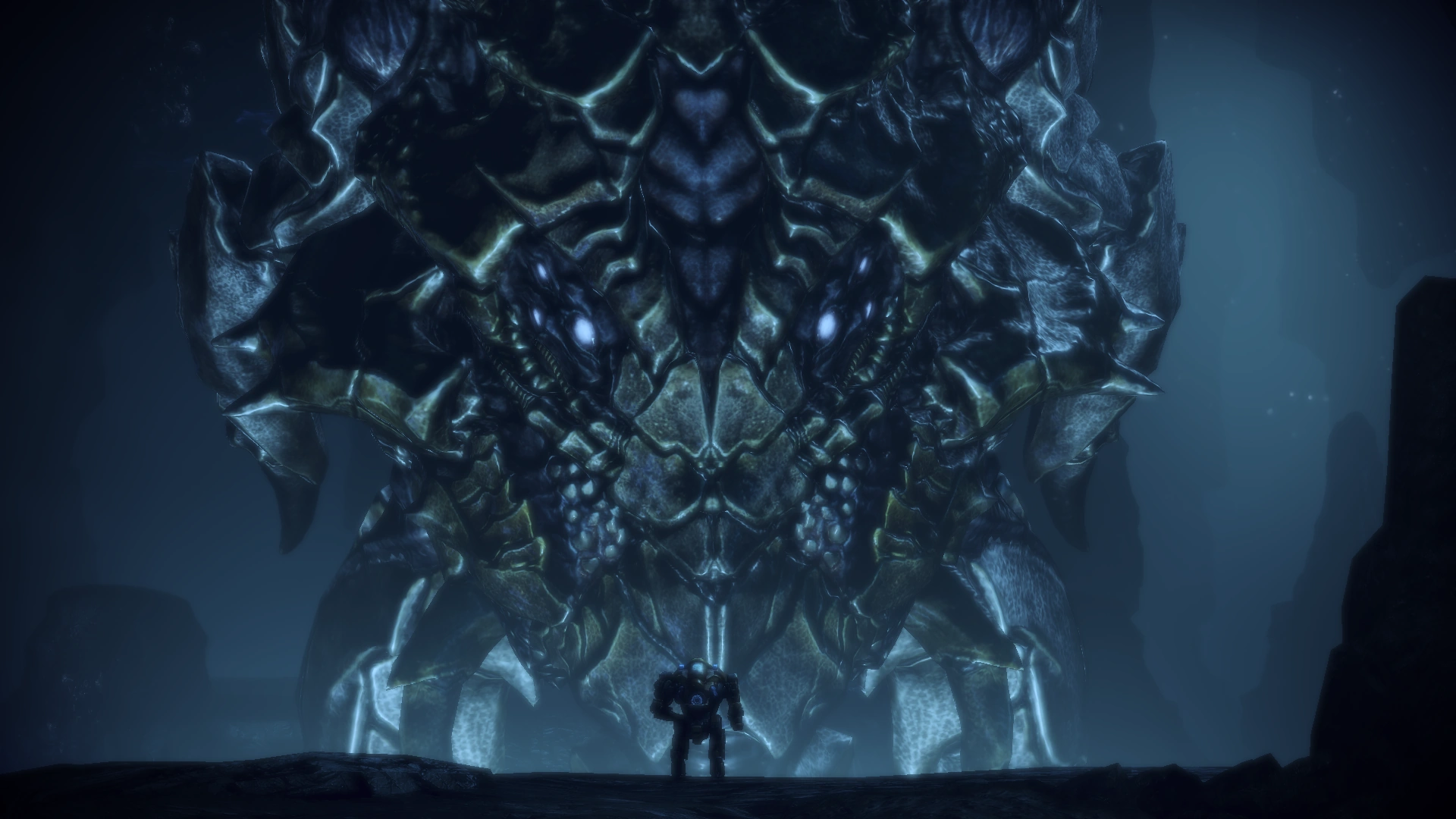Another Thankful Thursday, another thought on The Four Freedoms presented by Normal Rockwell. Be sure to check out the first in this series here.

In the USA (and other countries), the freedom to worship is a pretty important right. It means that a person is free to worship in a way that makes sense to them, and they are free to change how they worship (and who they worship). It also means, in a more modern sense, that a person is also free to not worship if they choose that, instead.
Well, that’s fantastic. What does that have to do with games?
I’ve talked about how some games mimic current religions from the physical world, and some pull from mythologies, and also how some games even predict the end times through their imagery.
More pertinent to today’s topic, I’ve discussed two conflicting beliefs presented in the same series, and – actually – within one game: theism and atheism. While the other articles above are fun and would make me smile if you read them, I would recommend you checking out the theism/atheism/Mass Effect one linked immediately above as it gets into some details that I’ll be just touching upon today.

Religion can be a touchy subject to talk about sometimes, because one person says something, another gets offended, and before you know it napkins are getting thrown around and people are getting smote. That’s obviously an exaggeration, but you get my point.
But what strikes me as so interesting is, in spite of this, how often some games sneak in some sort of religious organization. Even more interesting is how it’s portrayed.
Take, for instance, the Sun Soul monks from Baldur’s Gate, who believe (as far as I could gather) about the soul’s light emanating out through meditation practices. The temples were fairly benign, resurrecting friends for a fee or offering gossip if you paid them enough coin.
Well, I didn’t say they were perfect.
But what struck me was how “personal” the experience was. Folks seemed to believe in the Sun Soul dogma, and that was it. I didn’t come across any crazy zealots, and even when Rasaad would occasionally talk about the religion, it seemed more like a philosophical discussion than anything theological.

Or, take something like the Dragon Age series, in which the Chantry – a thinly-veiled reference to the Catholic Church – has all but a stranglehold on the world as an organization, but – in typical BioWare fashion – the average person is fairly accepting, even if they are fairly religious. But it’s the few zealots that ruin it for everyone and leave a lasting impression, oppressing mages, killing elves, and demonzing others not like them.
And then we have an incident that happens in The Witcher 3, during which Geralt comes across a holy man from the Church of the Eternal Fire who, basically, offers to pay off Geralt to ignore some crimes he has committed. If Geralt refuses, he is attacked. This is not to mention, again, the systematic oppression of magic-users, including watching graphic scenes of people being burned alive. Other religions are systematically put down and, you guessed it, demonized as well.

I wonder about this sometimes. After all, religion is supposed to be about becoming closer to a god, isn’t it? Religion is supposed to be a means of a person trying to always be the best, kindest, most altruistic person they can be. Loving others without condition, giving of yourself for another, doing the right thing even if no one is watching. So why does religion always have a dark spot on it in games?
The most obvious answer is that religion in the physical world has a dark stain on it, as well, at least the Western religions. Mistakes have been made in all three of them, and so it’s easy to point out those mistakes – and the people who continue to make horrendous mistakes in the name of their religion – and throw it into our media.

But what also strikes me as interesting is that the people in the games… They are part of these systems, and yet the average person believes that they are good people. And most of them are good people, simply going about their day and worshiping their god when their religion says to. They could easily be our neighbor, going to a religious service one day of the week, quietly believing that their god is looking out for them, and going about their lives.
And I think that’s the part of worship in games that is so important. The freedom to still live a good life in spite of what the organization might preach, or what other horrible people may do in the name of your religion; the freedom to choose to worship, or not, and not be hassled by your neighbor; the freedom – like Rasaad or even Leliana from Dragon Age – to have every ounce of your being be devoted to a religion, and have people know that, but also not have to prove anything or convert anyone because your religion means something to you and, at the end of the day, that is what matters.
Maybe, at the end of the day, the freedom to worship is just – “just” – the freedom to steer your life in a way that makes sense to you, without being hassled.
What do you think? Should religion and worship be handled more obviously in games, or “no thank you”? Do you think its fair that, in recent times, religions are often portrayed as corrupt, without any sort of obvious balance in the other direction? Does it matter? Let me know in the comments!
Thanks for stopping by, and I’ll see you soon!
~Athena
Do you like what you’ve read? Become a revered Aegis of AmbiGaming and show your support for small creators and for video games as a serious, viable, and relevant medium!


Now play Pillars of Eternity and see how your opinions on religion change afterward.
LikeLiked by 1 person
I’m sure my own personal opinions won’t change much, but I have heard very interesting things about Pillars of Eternity and am definitely interested!
LikeLike
Crones of Crookback bog… *shudders* I also remember my Geralt refusing to be paid off by that church guy, and then murdering him and his crew… in self-defense, I swear. The burning of mages in the Pyres of Novigrad was also awful to watch. But the thing that terrified me to my core, and made me hate the Church of Eternal Fire more than any other monster in the Witcher 3 I’ve seen so far, was what went down in a side quest called Carnal Sins. I’m still VERY disturbed by that entire quest. Ugh.
Anyway, fantastic post! I’ve noticed the ugly side of religion is often portrayed in video games. Bad people often use religion to justify horrific things, and that unfortunately gives it a black eye. Religion can also be a powerful force of inspiration to people, and I think that’s great and needs to be shown more in game stories. Personally, I’m agnostic and don’t believe in religion for me, but I always respect people who find comfort in peacefully practicing whatever religion they choose to believe in.
I seriously think we as a society need to chill and be open discussing touchy topics like religion. Civil discussions can be very enlightening, eh. Like I said, fantastic post!! 👍
LikeLiked by 1 person
I agree. A little bit of moderation when talking about touchy subjects, and remembering that the other person *is a person* would all go a long way. Maybe religion gets a bad rap in games because it’s more dramatic and causes “problems” for the player to solve? But I am also sort of over the blind “religionz iz bad” thing that seems to come up.
LikeLiked by 1 person
I think the reason religion is usually portrayed as blatantly corrupt in games and other media is because, well, it kind of is. Obviously, the message isn’t supposed to be..unless we’re going to dig into what the real message is. Proponents would say it’s positive and hopeful: Love Thy Neighbor and The Golden Rule, but in action, we often see a different story. Religion has long been used as a tool of fear and control. What’s more terrifying than eternal torture? You mentioned the Catholic Church, which has been revealed to have covered up horrible abuses for decades, though we know it’s more like centuries. In theory I have no issue with religion especially since many people use it to cope with what’s you’ve also mentioned as a gritty reality, but I think it says something that we’re more willing to concentrate on an afterlife that may or may not exist then try to fix things in a life we know that does.
I’m actually surprised FFX wasn’t more controversial as it had a VERY harsh view of the Church as well especially in regards to following something without question and literally going through the same sacrificial cycle over and over again.
LikeLiked by 1 person
You’re right that the bureaucratic nonsense and hypocrisy created by the people practicing the religion that leaves such a sour taste in people’s mouths.
Yeah, I was shocked when my aunt, who is fairly religious, recommended FFX to me *because* of the religious themes. I don’t think she played it, but still.
LikeLiked by 1 person
I don’t think she did either lol. It’s VERY critical of the church. Thematically in that regard it reminded me of His Dark Materials by Phillip Pullman, which was an answer to C.S. Lewis’ Narnia Chronicles. Like every issue there are nuances to it that people either ignore or miss. If I’m critical of religion it doesn’t mean I think you’re an idiot for believing in God (though there are some agnostics/atheists out there who are like that and ugh). It’s what most people are raised with and they either don’t question it or it’s such a core belief that even doing so won’t shake them, but that’s not my issue I all. I can’t stand when people justify bigotry with it and/or make laws based on it that hurt people which is what’s happening in the states now
LikeLiked by 1 person
True. And it is!!! I couldn’t believe it. At the end of the day, I do think religion is one of those things that, as long as you aren’t justifying hurting or hating other people because of it, it’s a perfectly fine thing. Now we just have to convince certain other people of this… hm…
LikeLiked by 1 person